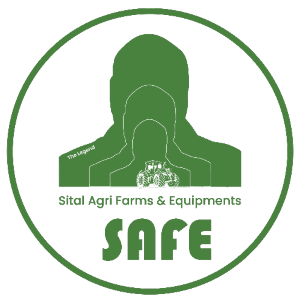Proper construction equipment maintenance is critical for extending its operational lifespan, ensuring optimal performance, and reducing long-term costs. This guide focuses on practical maintenance tips for engine and drivetrain systems, which are the heart of any construction machinery. Adhering to these tips can avoid unnecessary downtime, enhance safety, and maximize your investment.
Engine Maintenance Basics
- Regular Oil Changes: Oil is the lifeblood of any engine. Regular oil changes help reduce friction and wear on critical components. To ensure smooth operation, follow manufacturer guidelines for oil type and change intervals.
- Coolant System Checks: A well-maintained cooling system prevents overheating and costly repairs. Inspect coolant levels and replace the fluid according to the schedule. Also, check for leaks in the radiator and hoses, which can cause severe engine damage.
- Air Filter Replacement: Dirty air filters restrict airflow to the engine, reducing efficiency and causing premature wear. Replace air filters regularly to keep your equipment running at peak performance, especially in dusty environments.
Drivetrain System Maintenance
- Lubrication of Moving Parts: Proper lubrication minimizes friction, extends the life of moving parts, and prevents failures. For optimal results, use high-quality grease and oils recommended by the manufacturer.
- Inspecting Transmission Components: Check the transmission system regularly for signs of wear, such as unusual noises or difficulty shifting. Addressing minor issues early can prevent major failures.
- Belt and Pulley Care: Belts and pulleys are vital for transferring power within the drivetrain. Inspect them for cracks or signs of wear and replace them promptly to avoid sudden breakdowns.
Proactive Inspection Practices
- Daily Walkaround Checks: A daily walkaround inspection allows operators to identify potential issues early. Check for fluid leaks, tire wear, and loose components.
- Identifying Wear and Tear: Pay attention to unusual vibrations, sounds, or performance changes. These can indicate wear and tear that needs immediate attention to avoid costly repairs.
Seasonal Maintenance Tips
- Preparing for Winter: Cold weather can be harsh on construction equipment. Use winter-grade lubricants, inspect battery health, and ensure heaters and defrosters are functional.
- Heat Protection During Summer: High temperatures can strain engines and drivetrain systems. Ensure adequate cooling, inspect hoses for cracks, and use heat-resistant lubricants.
Storage Best Practices
- Proper Storage Environments: Store equipment in a dry, covered space to protect it from the elements. Exposure to rain, snow, or excessive sunlight can lead to corrosion and material degradation.
- Long-Term Storage Preparation: Drain fuel and lubricants, disconnect batteries, and cover the equipment to keep it in optimal condition for extended storage periods.
Operator Training
- Importance of Skilled Operation: Skilled operators can significantly impact equipment longevity. Training ensures proper handling, reducing unnecessary wear and tear.
- Minimizing Misuse: Educate operators on avoiding common errors such as overloading or improper shifting techniques. These practices can save the drivetrain from premature damage.
Common Maintenance Mistakes
- Overlooking Minor Issues: Ignoring minor problems can escalate into significant repairs. Regular checks and addressing minor issues promptly can prevent expensive breakdowns.
- Using Incorrect Parts: Always use genuine or manufacturer-approved parts. Inferior components may lead to system inefficiencies and costly failures.
Cost Analysis
- Cost Savings of Regular Maintenance: Preventive maintenance is cost-effective in extending the lifespan of equipment. It reduces unexpected downtime and expensive repairs.
- Long-Term ROI Benefits: Regular maintenance provides a high return on investment by improving performance, safety, and resale value.
FAQs
1. How often should I change my equipment’s oil?
Follow the manufacturer’s guidelines, typically every 250-500 operational hours.
2. What’s the best way to prepare equipment for winter?
Use winter-grade lubricants, inspect heaters, and check battery health.
3. Why is air filter maintenance essential?
Clean air filters improve engine efficiency and prevent premature wear.
4. How can I reduce drivetrain wear?
Ensure proper lubrication and avoid overloading the equipment.
5. What’s the cost of neglecting maintenance?
Neglecting maintenance can lead to costly repairs and reduced equipment lifespan.
6. Are genuine parts necessary for repairs?
Yes, genuine parts ensure compatibility and performance, reducing future repair costs.
Conclusion
Maintenance is the cornerstone of maximizing construction equipment’s lifespan. Regular inspections, proper lubrication, and attention to seasonal requirements ensure your machinery operates efficiently. Invest in operator training and follow manufacturer guidelines to achieve the best ROI and performance from your equipment.

